So you’re considering taking a polygraph test, also known as a lie detector, for personal or professional reasons. Finding a qualified, experienced and trustworthy polygraph examiner is crucial. Your results and their interpretation can significantly impact your life or business. Don’t leave this decision to chance.
1. Look for Proper Licensing and Accreditation

Any polygraph examiner you hire should have the proper licensing and accreditation. This ensures they have gone through the necessary training and meet standards of competency. Specifically:
- They should be licensed in your state if required. States regulate this industry widely.
- Look for membership in the American Polygraph Association.
- See if they are accredited. Accreditation through the American Polygraph Association or other group provides third-party quality verification.
Don’t risk unqualified examiners. Proper licensing and accreditation should be the first requirement.
2. Demand Extensive Experience
You want a seasoned professional conducting your polygraph test, not someone just starting out. The specificity and accuracy of results often depend on the examiner’s skill.
Look for:
- 5+ years experience preferred. This allows mastery of the trade.
- 500+ exams conducted. A track record of many tests shows capabilities.
- Specialized background. Look for experience with your type of test such as law enforcement pre-employment.
Ask detailed questions about their experience. It’s well worth it to get someone highly proficient specifically related to your needs.
3. Understand Their Testing Process

The examiner should explain their testing procedure and methodology in detail. This lets you understand what will happen during the test.
Key process-related topics to discuss:
- How the questions are determined. This is key to accuracy.
- Usage of standardized formats. Ask if they use proven test formats like You-Phase or Zone Comparison.
- Number of charts recorded. 3-4 charts per test is standard.
- Adherence to research-based question timing.
- If they hand score charts or use computerized scoring algorithms.
By learning their playbook upfront, you can have confidence in a rigorous, methodology-driven exam.
4. Review Their Continuing Learning
Top polygraph examiners constantly maintain and improve their skills.
- Ask about seminars and professional workshops they attend. These should be regular.
- Note if they pursue ongoing training in psychology, physiology, interrogation methods, and more.
- See if they stay updated on the latest polygraph research and techniques.
You want someone dedicated to excelling through continuing education, not an examiner stuck in the past. This helps assure accurate, up-to-date testing.
5. Get References and Read Reviews
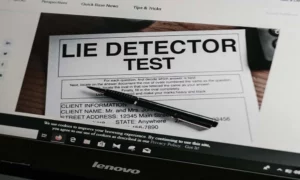
Don’t take a polygraph examiner’s word that they are the best. Do your due diligence.
- Ask for 2-3 past client references you can contact.
- Read online reviews on Google, Facebook, the Better Business Bureau, and polygraph industry sites.
- Search their name online for any concerning complaints or disciplinary issues.
Third-party input from those who have used their services will prove their capabilities and professionalism…or expose issues. Don’t skip this step.
6. Review Their Testing Environment
The environment of the exam can impact results. Be sure to:
- Visit their testing facility in advance if possible. See that it is professional and free from distractions.
- Ask about ambient noise, lighting, seating arrangements, and other factors that influence outcomes.
- See if they can travel to your preferred location if needed.
The setting should make you feel comfortable yet focused. If not, keep looking.
7. Understand Pricing and Avoid Unusual Requests
The examiner should be open about their pricing structure. Be wary if they demand payment upfront or other unusual requests.
- A reasonable deposit may be required to book the appointment.
- However, payment should occur only after the exam is complete.
- Avoid examiners who ask for the full fee ahead of time.
8. Feel Confident in Their Analysis Skills
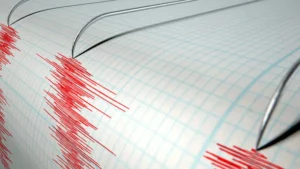
The polygraph charts mean nothing without proper analysis by a skilled interpreter.
- Ask how they were trained on and stay current on chart analysis.
- Understand their approach to analysis – hand scoring vs computer algorithms.
- Review sample charts to gauge their capabilities.
You want someone well-versed in deciphering the nuances of the data. Analysis expertise makes or breaks the reliability of your results.
9. Look for Excellent Communication Skills
Find an examiner who listens attentively, answers questions thoroughly, and communicates insightfully.
- Do they make you feel comfortable asking questions?
- Can you easily understand their explanations?
- Do they avoid excessive technical jargon when possible?
Clear communication promotes honesty and trust during an anxious process.
10. Trust Your Instincts
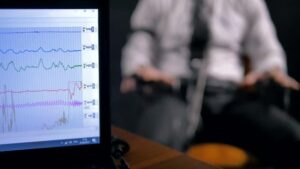
Never ignore your gut reaction during the selection process.
- Did they earn your confidence through detailed responses?
- Or evade questions and provide vague assurances?
- Does their personality and approach put you at ease?
Further Considerations
Confirm Confidentiality Measures
The ethical handling of your private results is paramount. A reputable examiner will have rigorous confidentiality practices.
- Ask about their procedures to protect your anonymity.
- Make sure test materials are not shared without your consent.
- Confirm results are kept secure through encryption and access controls.
Do not select services that are evasive or lax on explaining their confidentiality protocols. Your privacy should be treated with the utmost care.
Review Their Quality Control Practices
Consistent accuracy in testing takes more than one competent examiner. It requires organizational dedication to quality.
Look for services that:
- Have formal quality control programs and personnel. These validate that proper procedures are followed.
- Conduct internal peer reviews of testing practices.
- Track quality metrics like consistency in test duration and results.
- Ask for client feedback to continue improving.
Understand Their Range of Testing Services
While you likely have a specific test purpose in mind, understand the full range of polygraphs the provider can conduct.
- Do they offer testing for personal relationships, employment, convictions, or other needs?
- Can they accommodate customized tests?
Consider Supplemental Services
Polygraphers often provide additional specialized services:
- Background checks
- Personality assessments
- Drug & alcohol testing
- Private investigations
- Interview monitoring
An examiner experienced in complementary services makes for a one-stop-shop. This avoids the hassle of vetting multiple vendors.
Weigh Speed and Availability
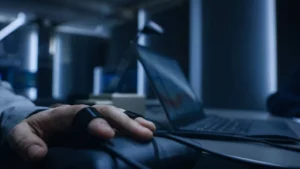
How quickly you need testing and their availability may play a role in your choice.
- What is their typical lead time to schedule an exam? Can they accommodate urgent needs?
- Do they have capacity for your required date/time or are they overbooked?
- How flexible are they if you need to reschedule?
Avoid delays by verifying their availability. But don’t sacrifice quality for speed alone.
Consider Their Years in Business
Both newly established polygraph businesses and long-running stalwarts can provide value.
- Startups may offer greater customization and responsiveness with less bureaucracy.
- Seasoned businesses bring stability, reputation, and depth of experience.
There are benefits to both models. Focus more on the individual examiner’s qualifications and track record when deciding.
Seek Neutral Third-Party Services When Needed
In certain sensitive situations, it is wise to use an independent examiner with no ties to either party involved in the test.
For example:
- Employment candidates may prefer unbiased examiners unrelated to the hiring company.
- Couples seeking relationship tests may want a neutral third-party resource.
Disinterested polygraph professionals avoid any appearance of favoritism or prejudice in outcomes.
Know How the Equipment Is Used
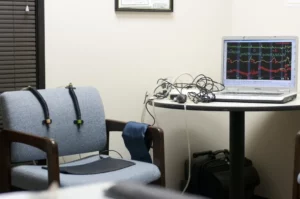
Polygraphy relies on sensors, algorithms, analytics, and other technologies. An examiner should explain how they:
- Use computerized systems instead of or in addition to manual methods
- Leverage data analytics for pattern detection
- Continuously validate the accuracy of their technological approaches
- Stay updated as new polygraph tech emerges
Technology, done right, enhances consistency, precision, and defensibility.
Consider Travel Logistics if Needed
If you require a polygraph examiner to come to a location of your choosing, evaluate associated factors:
- Willingness to travel locally or long distance as needed
- Mileage fees and other travel costs
- Availability of mobile testing equipment
- Flexibility in timing and delays
Don’t assume all services can easily travel. Discover their capabilities to avoid issues later.
Compare Multiple Examiners
The best way to make a confident choice? Compare multiple qualified contenders side-by-side.
- Develop a shortlist of top options through reviews and referrals.
- Interview each and systematically assess them on these criteria.
- Select the one that demonstrates expertise, experience, and transparency.
In Summary
Choosing the right polygraph examiner matters – a lot. Take time to research options, ask probing questions, and make an educated selection. The tips above highlight the key factors that separate qualified, trusted professionals from inexperienced or subpar examiners. Do your due diligence and get the confidence that comes from partnering with the best.

